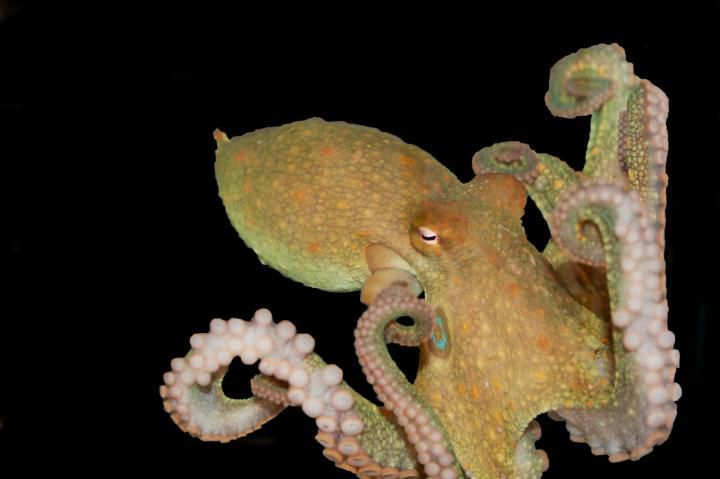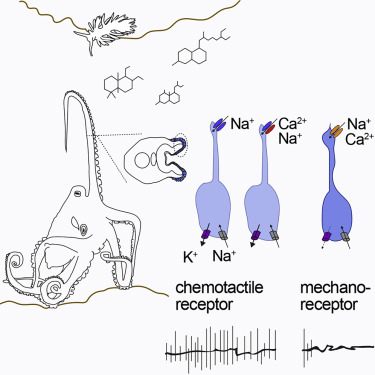
New research identifies a previously unknown type of nerve cell inside octopus suckers that the cephalopods use like taste buds.
The fact that octopus suckers can taste the world around them has been known for some time, but in the new paper, published this week in the journal Cell, researchers finally uncover some of the complex biology underlying one of this cephalopod’s many superpowers.
These specialized cells, which are not found in other animals, allow the arms to do things like distinguish food from other objects they may encounter as they probe blind crevices in the octopus’ underwater habitat, reports Jonathan Lambert for Science News. This skill comes in handy because each of the soft-bodied cephalopod’s eight arms can call its own shots, with a cluster of nerve cells capable of directing the appendage’s movements without needing to wait for instructions from the brain.
So when an octopus hunts, the arms can search nooks and crannies almost autonomously, tasting what’s inside with their suckers and swiftly capturing prey like crabs, snails and fish while discarding everything else without any need to take a closer look.
To figure out how octopus suckers accomplish this complex task the researchers took a closer look at the suckers of California two-spot octopuses (Octopus bimaculoides) in the lab. Under a microscope, the researchers found structures that looked like sensory cells on the surface of the suckers, per Science News. When the team isolated and tested these cells, they found there were two types.
One type was sensitive to touch and similar to cells seen in other animals. But the other cell type was something altogether new, featuring receptor proteins that responded to chemical stimuli like fish extract.
To learn more about how these taste-sensitive sucker cells worked van Giesen and her colleagues conducted genetic experiments that revealed a broad palette of these receptor proteins covering the newly discovered taste cells. Each protein receptor is tuned to respond to a different chemical in the environment, providing the octopus with a wealth of sensory information about anything they lay a sucker on.
With the help of these cells the octopuses create “a very detailed taste map of what they’re touching,” Rebecca Tarvin, a biologist at the University of California, Berkeley, who penned a commentary about the new paper but was not involved in the research itself, tells the Times. “They don’t even need to see it. They’re just responding to attractive and aversive compounds.”
https://www.smithsonianmag.com/smart-news/octopuses-taste-food-special-cells-their-suckers-180976180/
